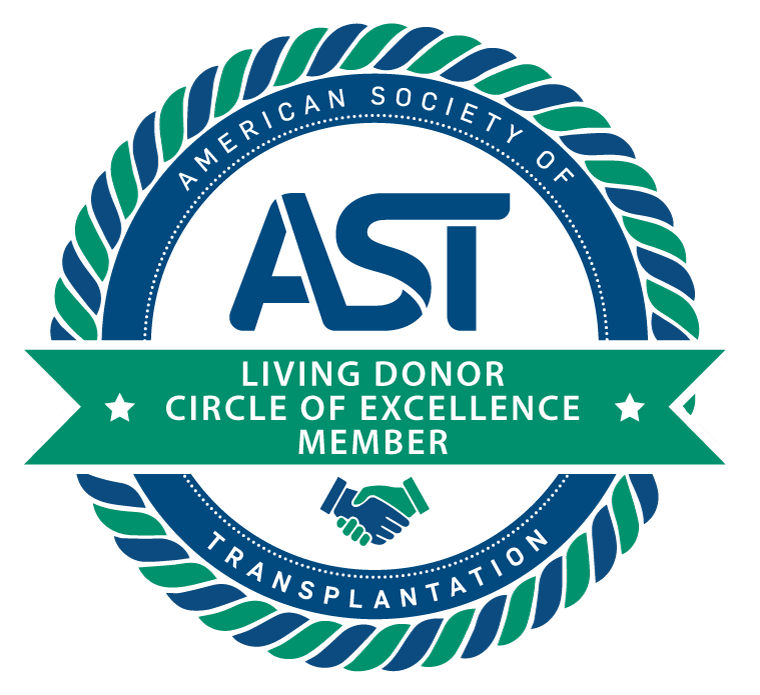April 25, 2023
Consider becoming a living kidney donor: This is National Organ and Tissue Donation Awareness Week

Five years ago, Dr. Sandra Davidson, PhD, dean and professor, Faculty of Nursing, donated a kidney for both personal and professional reasons. Her husband’s family has a history of kidney disease and, when his kidneys stopped working in his early 20s, he received a living kidney donation from his father. The donated kidney worked well for over 25 years but failed in 2016, putting him back on dialysis.
“As a wife, watching your husband’s life turn from very normal to being connected to a dialysis machine three days a week for four hours at a time, the quality of life was gone for our family.” Davidson decided she would get worked up to explore becoming a living kidney donor.
“As a registered nurse, I understand the personal burden of dialysis treatment on patients and their families as well as the cost to the health-care system for this long-term life-sustaining treatment.”
More than 4,000 people in Canada are waiting for a life-saving organ transplant and 76 per cent of them are waiting for a kidney. About one-third of adult kidney transplants are made possible by living donors, but financial disincentives are a barrier for many potential living donors. Living kidney donation typically includes a four-to-six-week recovery period and, during this recovery, many donors use vacation time or take unpaid leave.
The University of Calgary is proud to be a member of the American Society of Transplantation's Living Donor Circle of Excellence. The program recognizes organizations that have policies in place to support the wages of employees who become living donors, and the university is pleased to offer this benefit to its employees.
"Living organ donation is an important way to save lives and improve the health of people suffering from organ failure," says Dr. Marcello Tonelli, MD, associate vice-president (health research).
"As a nephrologist, I am so proud that our university is committed to supporting this life-saving practice.” Tonelli is a professor in the Cumming School of Medicine, a nephrologist with Alberta Health Services, and president-elect of the International Society of Nephrology.
While Davidson wasn’t a matching donor for her husband, the Canadian Kidney Paired Donation program facilitates willing participants to be living donors while ensuring that the individual they want to help receives a needed kidney. She was a match for a stranger and another individual was a match for her husband.
“Somebody made my husband’s life better, and my other kidney is out there walking around making someone else’s life better.”
The overall impact of helping another person through that gift of life is really amazing and well worthwhile.
The health-care system takes great care to ensure that people who are considering living kidney donation are in good health. Potential donors are assessed by an independent medical team with no connection to the recipient, and individuals will not be accepted if donation may pose an undue risk to them.
Medically suitable donors will be provided with all the information they need to make an informed decision about the choice to donate and can choose to proceed without any pressure. People who do proceed with donation can be confident that their health will not be negatively impacted and will receive expert followup from their medical team after donation.

Sandra Davidson.
Submitted
“When I donated, I was in the middle of my career and concerned how this would impact my work and the time I needed off for surgery and recovery,” says Davidson. “The university taking this step as an employer to support your choice and what you are doing for somebody else, puts your mind at ease and you can focus on the process of donation and recovering instead of worrying about if you’ll have enough sick time or using up all your vacation time.”
By supporting the time for living kidney donation by employees, the university is helping to improve the health of people in our community and beyond. University employees may contact Human Resources through UService if they have questions about the policies to support the absence from work to become a living kidney donor.
Resources for potential living donors:
- My Health Alberta - living organ donation
- Canadian Blood Services - living kidney donation information and learning resources
- Kidney Foundation of Canada (Southern Alberta Branch) - Living Organ Donor Expense Reimbursement Program
Interested in becoming a living kidney donor? Contact the Southern Alberta Transplant Program
Interested in becoming a living liver donor? Call 403-944-4204
Marcello Tonelli is a professor in the department of Medicine, senior associate dean (clinical research) at the Cumming School of Medicine (CSM), and a member of the O’Brien Institute for Public Health and the Libin Cardiovascular Institute at the CSM.








